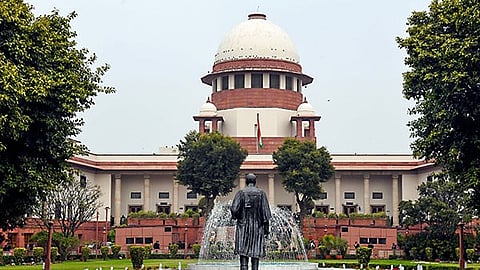

Today, Monday, July 15, the Supreme Court issued notices to private parties on a batch of pleas filed by the National Testing Agency (NTA) seeking transfer of cases pending against it in various high courts on the National Eligibility-cum-Entrance Test for Under Graduate (NEET-UG) row to the top court to avoid multiplicity of litigations.
Earlier, a vacation bench had, on June 14, issued notices to the parties on similar pleas by the NTA, PTI reported.
The NTA had submitted that several pleas seeking cancellation of the NEET-UG 2024 over allegations of question paper leak and other malpractices are pending in several high courts.
Advocate Vardhaman Kaushik, appearing for the NTA, urged a bench comprising Chief Justice DY Chandrachud and Justice JB Pardiwala today, July 15, that the fresh batch of pleas also be transferred to the apex court as they pertained to the same issue. "Issue notice and tag," the bench said, adding that these pleas will also be taken up together with the pending petitions on the NEET-UG row on July 18.
The NTA also urged the bench to stay the pending proceedings in various high courts. The CJI said once the Supreme Court has issued notices on transfer petitions, the high courts, procedurally, do not proceed with the hearing.
Further, the bench asked the NTA counsel to bring this to the notice of the high courts concerned. The top court was hearing as many as five petitions seeking transfer of cases from various high courts to it.
Earlier, the bench had, on July 11, adjourned till July 18 the hearing on a bunch of other petitions seeking cancellation, re-test and probe into alleged malpractices in the conduct of NEET-UG, 2024 as the responses of the Centre and the NTA were not received by a few parties.
The bench had also said it has received a status report from the CBI on the progress made in the probe into alleged irregularities in the conduct of the exam.
In an additional affidavit filed in the apex court on July 10, the Centre had said data analytics of the results of NEET-UG 2024 was conducted by the Indian Institute of Technology (IIT) Madras which found there was neither any indication of "mass malpractice" nor a localised set of candidates benefiting from it and scoring abnormally high marks.
The government's assertion assumed significance in view of the observations made by the top court on July 8 that it may order a re-test if there were large-scale malpractices in holding the exam on May 5.
